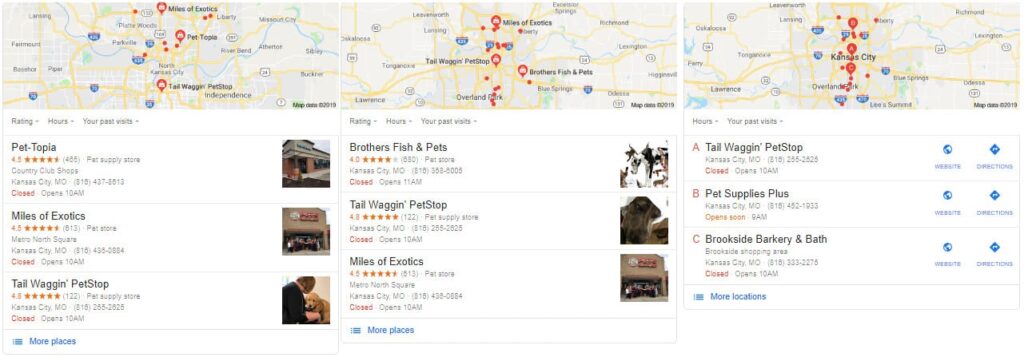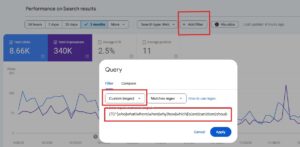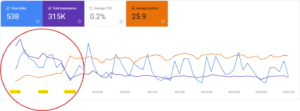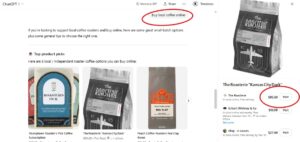When it comes to local SEO efforts, one of the best things you can do is identify your local competition. The reason that knowing your competition is so important is that it is nearly impossible to beat your competition if you don’t know who they are. When you work with Rank Fuse, we help you find your competitors and implement a strategy that will help you outrank them on Google.
4 Steps for Identifying Local Competitors
At Rank Fuse, we use a few simple steps to best determine local competition for our clients. Here are these steps:
#1. Determine Keywords
The first thing we do is look at keywords. When you can best determine what keywords you want to rank for, you can use these keywords to see who else is ranking highly or trying to rank highly for those terms. While you should be able to identify at least a few keywords you want to rank for, you can also dive a little deeper.
To help you, you can use tools like Google’s Keyword Planner tool can help you determine a few new keywords that are related to your products, services, and content. Additionally, the Keyword Planner can show you how often certain terms are search in Google and how the searches have changed over time. This research can be extremely valuable-especially for those with tight advertising budgets. For example, if there has been a significant dip in the number of times a keyword is being searched in Google, you might decide to use other terms that are performing better instead. This tool can also give you suggested bid estimates for each keyword term that you are considering, which can help you best determine what you want to spend on advertising.
If you already plan on using Google to advertise, which, let’s be honest, nearly every company can benefit from, you can use the Keyword Planner tool to take the terms that you have already researched and add them to your advertising plan in Google.
Much like Google’s Keyword Planner, SEMRush and SpyFu are tools that can help you find and research keywords that you are considering for your website and advertising. Using these tools, you can run your URL and the URLs of your known competitors through the system to see what keywords are already being used on your website and the sites of your competition. You can see how your site stacks up to similar businesses in your area and national competitors.
SEMRush and SpyFu are also really helpful in determining your competitors if you are unsure who you are battling for business. You can figure out your keywords and then search for other companies using those keywords on Google.
#2. Look at SERPs
Once you know what your best keyword options are, you can use these keywords to search for your competition in Google. Take these keywords and search them in Google with your location. For example, if we wanted to determine local competitors for a pet store in Kansas City, we might search “Pet Store Kansas City”. This keyword phrase should show us who in our area considers themselves a pet store. Modifying this phrase a little bit might also yield different results with different competition. We might also search “Pet Shop Kansas City” and “Pet Supplies Kansas City.” See how these searches all yielded different results!
 If you start to see the same company popping up over and over again in your searches, you can bet that they are a competitor.
If you start to see the same company popping up over and over again in your searches, you can bet that they are a competitor.
#3. Look at Ads on Google
Many companies pay for ads to show up above the first result on Google SERPs. These companies are listed as ads in the search results, but they are also paying for the same keywords that you want to rank for! If a company is willing to shell out money to rank for similar keywords that you are using, then you can infer that they are a business that is in competition with your own. Additionally, you can see how they are marketing themselves.
There may also be additional ads on the bottom and right side of a SERP if you are searching on a desktop computer, so pay attention to those as well.
#4. Check Local Business Directories
While phone books may seem like things from the past, online business directories are a great way to see who you are in competition within your area. A few of the best places to look besides Google are:
- Yelp
- Facebook Places
- Apple Maps
- Yellow Pages
- Hubspot
- Bing
- Yahoo! Local
- Citysearch
- Four Square
It might take you a little time to delve into all of the websites, but it can be a huge benefit down the line to know exactly who you are competing with locally.
How to Outperform Your Competitors
Now that you know who your competitors are, it is time to beat the competition. To outperform your competitors, you need to focus on an SEO strategy. With search engine optimization, Rank Fuse can help you determine the best way to get ahead of your competitors and better understand what you need to do to get as much business out of your area as possible.
One big problem for many businesses is that search results are incredibly different than they used to be. Now, local packs and organic results are driven by geolocation and geo-modification, which means that you need to do a lot more to track how you show up in search results. At Rank Fuse, our digital marketing specialists know just how to use SEO and paid advertising to help you gain business in your sector by improving how often you are viewed online.
To learn more about what we can do to help you, contact Rank Fuse at 913-703-7265.




